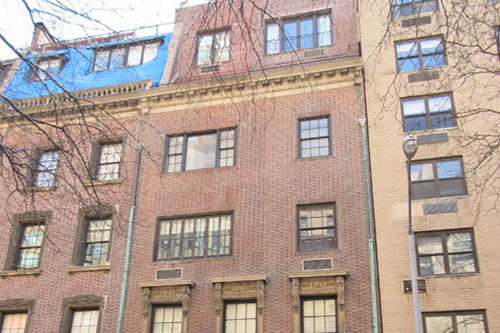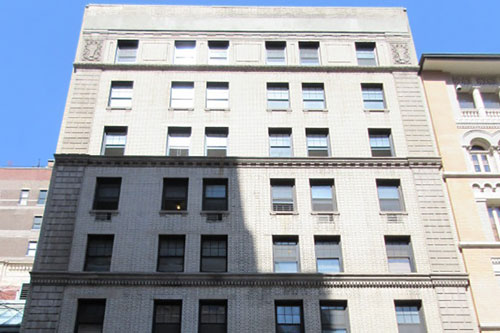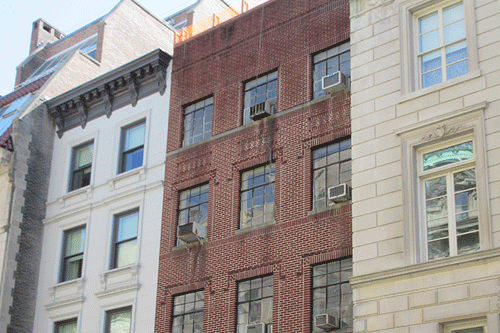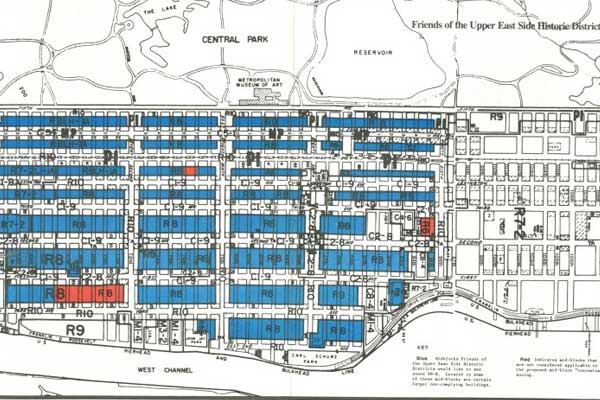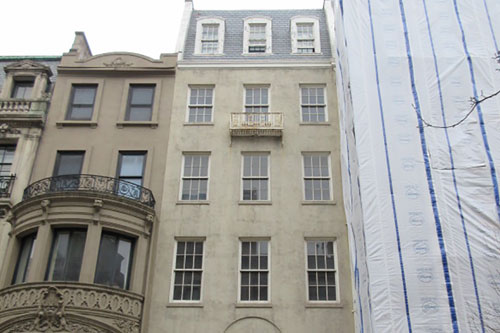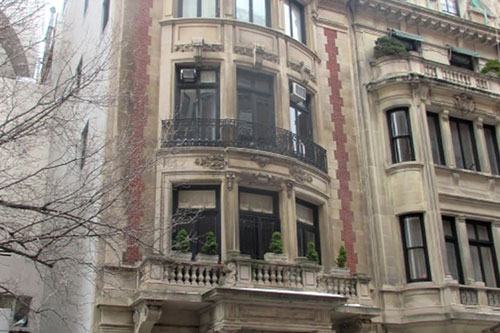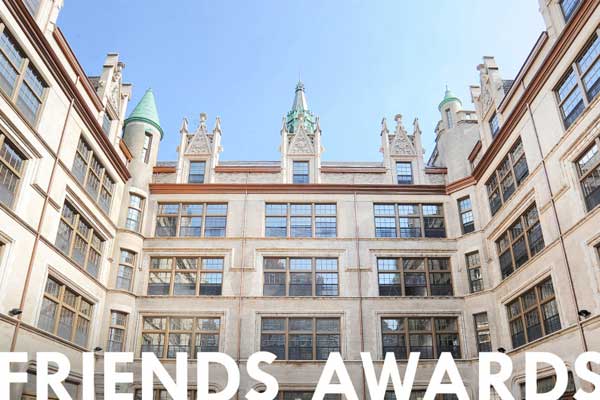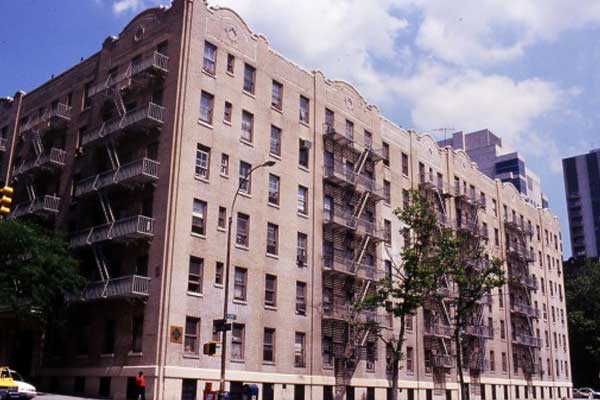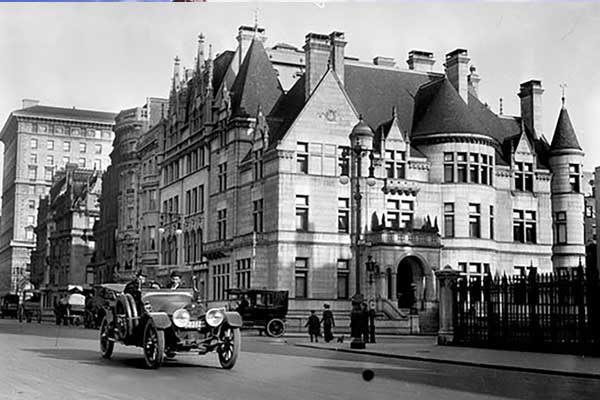16 East 84th Street
An altered neo-Georgian style rowhouse designed by Clinton & Russell and built in 1899-1900.
27 East 62nd Street
An apartment building with neo-Renaissance style details designed by Lawlor and Haase and built in 1912-1913. Application is to construct additions.
ADVOCACY UPDATE: FRIENDS testifies before City Planning on Zoning Text Amendment
As any good preservationist would, I will start with a bit of history. In 1985, our founding president, Halina Rosenthal, wrote to our members:
36 East 68th Street
A rowhouse designed by R.W. Buckley, built in 1879, and modified in the neo-Classical style by Morris & O’Connor in 1932. Application is to reconstruct the front facade, modify the roof and rear facade, and excavate the cellar.
Rescued, Restored, Reimagined: New York’s Landmark Interiors
Celebrating the 50th anniversary of New York’s landmark legislation, this exhibition at the New York School of Interior Design will feature more than a dozen public spaces that have been designated as interior landmarks. Using both contemporary and archival photography, it will highlight the importance of public interiors as the spaces
5 East 88th Street
A Beaux-Arts style townhouse designed by Turner & Kilian and built in 1902-1903. Application is to replace windows.
32nd Annual Meeting and Awards Ceremony: Tuesday, March 17th
We are pleased to hold our 32nd Annual Meeting & Awards Ceremony at The Cosmopolitan Club. The Regency Revival-style building was designed by architect Thomas Harlan Ellett in 1932 and is a fitting setting to recognize the fine restoration, renovation, and advocacy work on the Upper East Side over the
ADVOCACY UPDATE: FRIENDS Files an Amicus Brief in Support of NYC
Friends of the Upper East Side Historic District (FRIENDS) and prominent local and national preservation groups, along with elected officials, have filed an amicus curiae brief on behalf of the City of New York in an ongoing battle to stop the demolition of two historic properties.
February 18th: A Celebration of the 50th Anniversary of the Landmarks Law
Following the completion of Central Park, upper Fifth Avenue became New York City’s most desirable address, where prominent families constructed opulent mansions.


